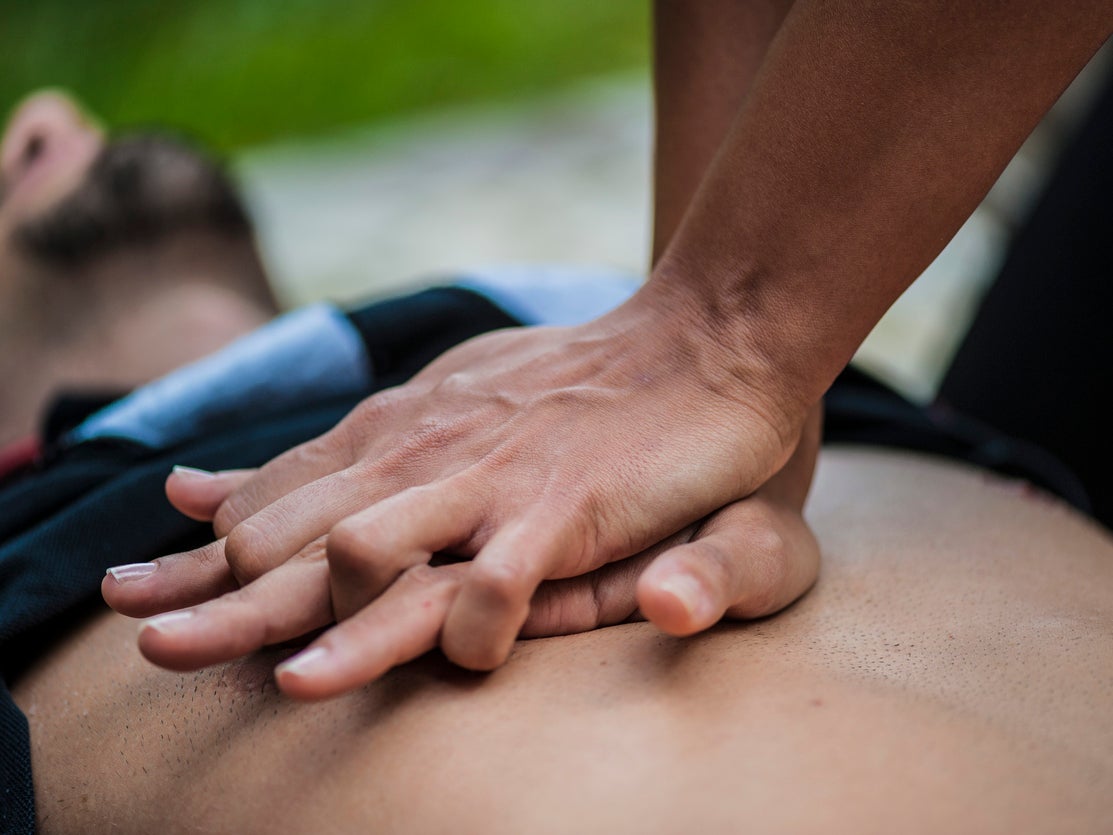Lifesaving first aid to be included in school curriculum and could save 'thousands of lives'
'This historic move will transform cardiac arrest survival rates in the years to come'

Your support helps us to tell the story
From reproductive rights to climate change to Big Tech, The Independent is on the ground when the story is developing. Whether it's investigating the financials of Elon Musk's pro-Trump PAC or producing our latest documentary, 'The A Word', which shines a light on the American women fighting for reproductive rights, we know how important it is to parse out the facts from the messaging.
At such a critical moment in US history, we need reporters on the ground. Your donation allows us to keep sending journalists to speak to both sides of the story.
The Independent is trusted by Americans across the entire political spectrum. And unlike many other quality news outlets, we choose not to lock Americans out of our reporting and analysis with paywalls. We believe quality journalism should be available to everyone, paid for by those who can afford it.
Your support makes all the difference.Lifesaving first aid is set to be included in the national school curriculum after years of campaigning.
The government’s proposals to teach first aid skills and CPR training – as part of compulsory health education in all schools in England from 2020 – could save thousands of lives, charities say.
Secondary school students would be taught how to administer CPR, as well as basic treatment for common injuries, under plans included in a Department for Education consultation.
And primary school children are set to learn basic first aid alongside the steps they can take to protect and support the health and wellbeing of others, according to draft guidelines.
The British Heart Foundation (BHF), St John Ambulance and British Red Cross – who together form the 'Every Child a Lifesaver' coalition – have been campaigning for CPR to be taught in schools.
Simon Gillespie, chief executive of the BHF, said: “Adding CPR to the curriculum in England will mark a defining moment in improving the UK’s shockingly low survival rates from cardiac arrests.
“Less than one in 10 people survive an out of hospital cardiac arrest in the UK, but evidence suggests nearly one in four could survive if all young people are trained with lifesaving CPR skills.
“The government’s announcement is the result of years of tireless campaigning, and sends a clear message that they are committed to empowering young people with lifesaving skills they will take in to adulthood.
"This historic move will transform cardiac arrest survival rates in the years to come.”
Mike Adamson, chief executive of the British Red Cross said: “Future generations will now have the simple yet vital first aid skills, which could mean the difference between life and death in a first aid emergency.
“This decision is a significant step forward in empowering our nation with the knowledge and confidence they need to understand their own health, and to build strong communities who know how to help in a crisis."
Martin Houghton-Brown, chief executive of the St John Ambulance, said: “We at St John Ambulance are delighted with the government’s announcement that they intend to make First Aid education mandatory for primary and secondary pupils.
“Lives will be saved, and young people will benefit from developing skills that will build their character and strengthen community resilience."
The government announced on Thursday that children are set to be taught how to build mental resilience, as well as how to recognise when their peers are struggling with mental health issues.
It follows a national call for evidence where teachers, pupils and parents were asked what they thought should be taught as part of compulsory relationship and sex education (RSE) classes.
Join our commenting forum
Join thought-provoking conversations, follow other Independent readers and see their replies
0Comments